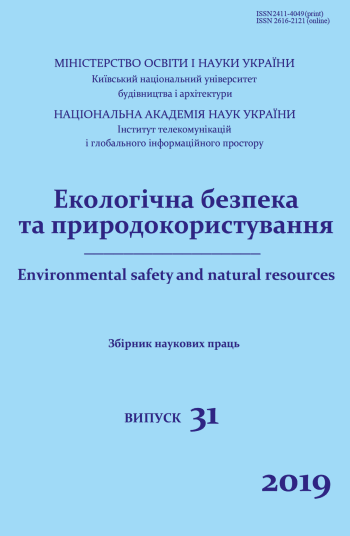Formalization of the mathematical modeling process of adaptive change of code structure in wireless data transmission
DOI:
https://doi.org/10.32347/2411-4049.2019.3.64-78Keywords:
correction codes, turbo codes, adaptation, decoding algorithms, interferenceAbstract
The formalization of the process of structural adaptation of turbo codes under the conditions of noise interference, which lead to uncertainty in the process of decoding of correction codes, is proposed. The essence of formalization lies in the adaptive choice of the structure of the correction code using the a priori and a posteriori information of the decoder at the expense of minimizing the average risk. The proposed results can be used to ensure the reliability of information transfer systems that operate in the face of powerful interference.References
Borisov, V. I., Zinchuk, V. M., Limarev, A. E., etc. (2000). Interference protection of radiocommunication systems with the expansion of the spectrum of signals by the method of pseudorandom tuning of the operating frequency. Moscow: Radio and communication. (in Russian).
Berrou, C., Glavieux, A., & Thitimajshima, P. (1993). Near Shannon Limit Error-Correcting Coding and Decoding: Turbo-Codes. In Proc. Int. Conf. On Commun., May 1993 (pp. 1064–1070).
Holma, H., & Toskala, A. (2006). Hsdpa/Hsupa for UMTS: High Speed Radio Access for Mobile Communications. John Wiley & Sons.
Valenti, M., & Sun, J. (2001). The UMTS turbo code and an efficient decoder implementation suitable for software-defined radios. Int. Journal of Wireless Inf. Networks, 8(4), 203–215.
Consultative Committee for Space Data Systems. (1998). “Recommendations for space data systems, telemetry channel coding.” BLUE BOOK.
3GPP TS 25.212. Multiplexing and Channel Coding (FDD). (2005). 3GPP Technical Specification Group Radio Access Network.
Digital Video Broadcasting (DVB): Interaction channel for satellite distribution systems (DVB-RCS). (2000). ETSI EN 301 790 V1.2. 1 (2000-07).
Ergen, M. (2009). Mobile Broadband. Including WiMax and LTE. Springer.
Zhenhuan, W. (2011). Layered Adaptive Modulation and Coding For 4G Wireless Networks. In Thesis presented to the University of Waterloo in fulfillment of the thesis requirement for the degree of Master of Applied Science in Electrical and Computer Engineering (49 p.). Ontario, Canada: University of Waterloo.
Jihoon, K., Kyoung-Jae, L., Chang Kyung, S., & Inkyu, L. (2009). A Simple SNR Representation Method for AMC Schemes of MIMO Systems with ML Detector. IEEE Transactions on Communications, 57(10), 2971–2976.
Liang Huang, J. (2009). Adaptive MIMO Systems with Channel State Information at Transmitter (PhD Thesis). KTH School of Information and Communication Technology, Stockholm.
Goldsmith, A., & Chua, S. (1997). Variable-rate variable-power MQAM for fading channels. IEEE Transactions on Communications, 45(10), 1218–1230.
Alouini, S., & Goldsmith, A. (2000). Adaptive Modulation over Nakagami Fading Channels. Wireless Communications, 13(1-2), 119–143.
Maaref, A., & Aissa, S. (2004). Rate-adaptive M-QAM in MIMO diversity systems using space-time block codes. In Proc. IEEE PIMRC 2004 (Vol. 4, pp. 2294–2298).
Repin, V. G., & Tartakovsky, G. P. (1977). Statistical synthesis in a priori uncertainty and adaptation of information systems. Moscow: Soviet Radio. (in Russian).
Woodard, J., & Hanzo, L. (2000). Comparative Study of Turbo Decoding Techniques: An Overview. IEEE Transactions on Vehicular Technology, 49(6), 2208–2232.
Downloads
Published
How to Cite
Issue
Section
License
Copyright (c) 2019 Borys V. Horlynskyi, Sergei V. Zaitsev, Svitlana P. Kaznadiy, Lilia I. Zaitsevа

This work is licensed under a Creative Commons Attribution 4.0 International License.
The journal «Environmental safety and natural resources» works under Creative Commons Attribution 4.0 International (CC BY 4.0).
The licensing policy is compatible with the overwhelming majority of open access and archiving policies.

